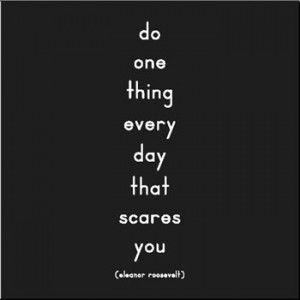The Fredstock 2 benefit concert Erin and I went to Friday night hit me where I live for another reason besides a love of music: The event was also about raising awareness about colorectal cancer. I’m a high-risk case.
Mood music:
I never knew Fred Ciampi, the man the benefit is named for. He passed away this winter from colorectal cancer, and the benefit was also meant to help out his wife, Claudia DeHaven Ciampi-Biddle. (Donations can still be made by writing to Claudia@snowlionyoga.com. Please put Fredstock Donation in the subject.)
 When I saw his picture, my first thought was, “Man, he was young.” In fact, he died just shy of his 40th birthday.
When I saw his picture, my first thought was, “Man, he was young.” In fact, he died just shy of his 40th birthday.
The other thing that came to mind was that it could just as easily be me in the obituary. The childhood Crohn’s Disease that reduced my colon to a tube of scar tissue also left me at a much higher risk for colon cancer.
It’s something I’ve had to live with since 1990, when I got a letter from my then-doctor recommending I get regular colonoscopies to monitor for possible colon cancer. As a 20-year-old I balked. You never really worry about cancer at that age. But I had the test anyway.
It was a good thing I did.
They found hundreds of polyps throughout the colon. These weren’t — and aren’t — the type of polyps that they typically worry about. These are more like skin tags. Specifically, they are part of the scar tissue.
The doctor was pretty stern with me. “You can’t wait five years between colonoscopies,” he told me. “This stuff can be dangerous.”
Naturally, I went eight years before the next one, and in those years I did some of the most vicious binge eating of my life. Each year that passed made me more fearful of what was going on inside.
I got the test done in 1999 because of some bleeding. Everything was fine, and I’ve done much better at getting a colonoscopy every other year to keep an eye on things. So far, so good, though I’m about a year overdue for the next one. I better make that call this week.
Perhaps I’m a fatalistic personality, but I won’t be a bit surprised if colon cancer is found in me at some point. I haven’t had a Chrohn’s attack since 1986 and I know my luck could run out sooner or later.
But I don’t really fear it like I used to. I figure I get the test frequently enough that anything they find will be at an early and treatable stage.
If I’ve learned anything from all this, it’s that fear and embarrassment is the deadliest risk of all.
People are too embarrassed to get a colonoscopy because of how the procedure is done. No one has to know about it except their doctor and maybe a couple family members. But they avoid the test anyway because they still find it embarrassing. Then they end up dying of colon cancer a few years later. Not in every case, but in many.
Embarrassment is a powerful thing. It keeps a person from seeing things as they really are and keeps them from facing their demons.
It’s not always bad to be embarrassed. God put the emotion in us for a reason. If we’re a jerk to someone or we get caught doing something unethical, we should feel shame.
But we shouldn’t feel shame over an illness and shouldn’t be embarrassed about getting help, whether it’s for colon trouble or the mental illness and addiction at the heart of this blog.
I’m not saying Fred was like that. Like I said, I never knew him.
But I know a thing or two about fear, shame and embarrassment.
Don’t let those things keep you from letting the professionals help you.















